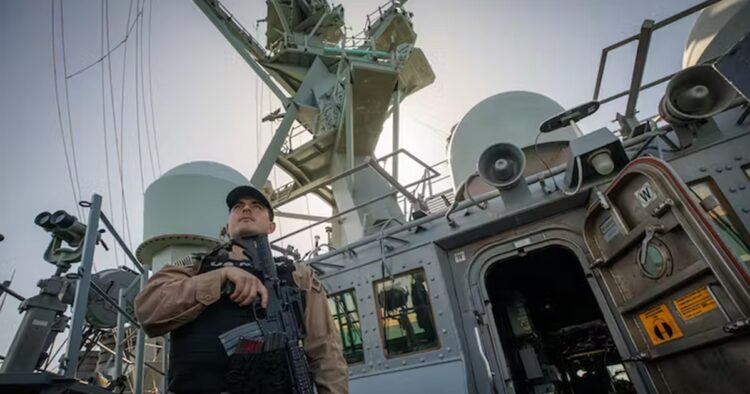In recent developments, the United States is contemplating military strikes against Houthi rebels in Yemen, who have been targeting commercial ships in the Red Sea. The Pentagon is weighing various options for missile attacks, and the Dwight D. Eisenhower carrier strike group has been positioned off the coast of Yemen in response.
Since November 2023, Houthi rebels, backed by Iran, have launched multiple attacks on commercial vessels in the Red Sea. These assaults not only pose navigation risks but also have broader economic and geopolitical implications globally.
The global economy heavily relies on the maritime supply chain, with about 80% of international trade by volume transported by sea. The attacks in the Red Sea by Houthi rebels have disrupted this vital supply chain, affecting industries from mobile phones to food items, with repercussions felt far beyond the Yemeni coast.
Supply Chain Vulnerabilities and Economic Impact
The fragility of the maritime supply chain is evident, as seen in incidents like the six-day blockage of the Suez Canal in 2021 and labor shortages in Chinese ports during the COVID-19 pandemic. Intentional disruptions by pirates or terrorists further complicate logistics, impacting insurance premiums and deterring ship operators from certain routes.
Piracy, a longstanding criminal activity, has disrupted maritime trade for decades, while politically motivated groups, such as terrorist organizations like the Houthis, pose a different kind of threat. Their attacks are aimed at increasing risk perception, disrupting supply chains, and influencing geopolitical situations.
Limited Options and Military Response
Addressing politically motivated groups like the Houthis proves challenging, as they are often willing to sacrifice for their cause, unlike pirates seeking financial gain. Deploying security personnel or vessel protection detachments may have minimal effect.
As a response, the US has initiated “Operation Prosperity Guardian,” assembling an international naval task force, including UK assets. This task force aims to intercept missiles and defend commercial shipping in the Red Sea. However, challenges remain, with a limited number of warships patrolling a vast area and limited warning time for missile attacks.
While a military response is considered, there are concerns about potential political risks and escalation of the crisis in Yemen and the broader region. The success of the task force will be evaluated based on its ability to reassure insurers, operators, and global markets, emphasizing the importance of a safe shipping route without further escalating tensions in the turbulent region.

















Comments